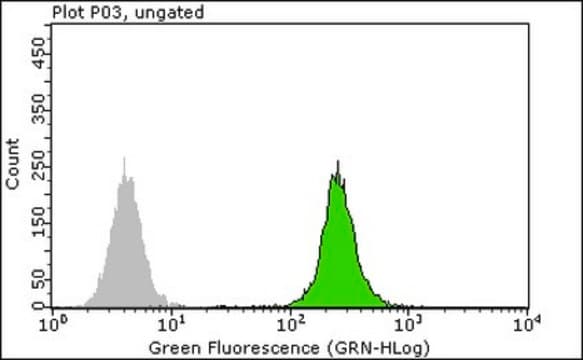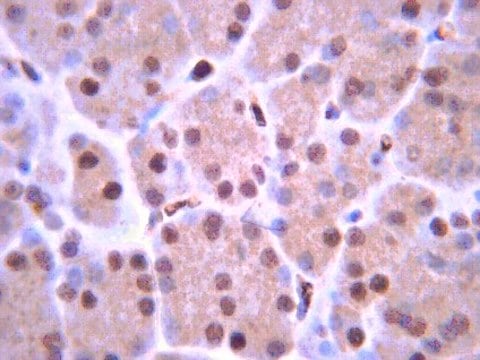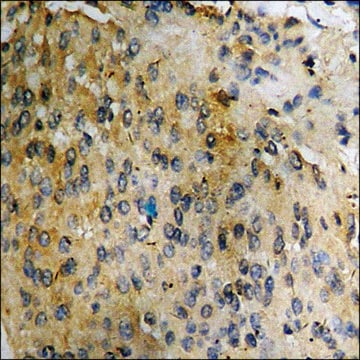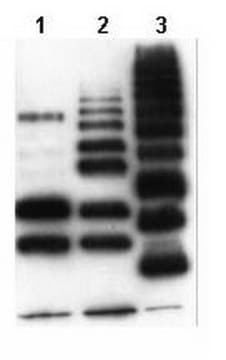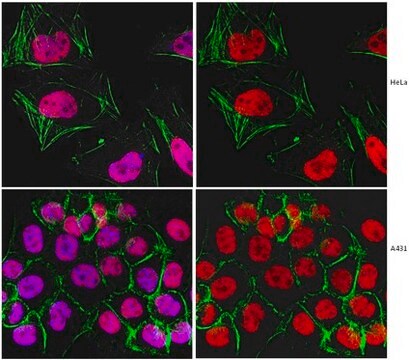MAB4356
Anti-DPPA-2 Antibody, clone 6C1.2
clone 6C1.2, from mouse
Sinônimo(s):
Pluripotent embryonic stem cell-related gene 1 protein, developmental pluripotency associated 2
About This Item
Produtos recomendados
fonte biológica
mouse
Nível de qualidade
forma do anticorpo
purified antibody
tipo de produto de anticorpo
primary antibodies
clone
6C1.2, monoclonal
reatividade de espécies
mouse
técnica(s)
western blot: suitable
entrada
sample type: mouse embryonic stem cell(s)
Isotipo
IgG2aκ
Condições de expedição
wet ice
modificação pós-traducional do alvo
unmodified
Informações sobre genes
mouse ... Dppa2(73703)
Descrição geral
Especificidade
Imunogênio
Aplicação
Stem Cell Research
Pluripotent & Early Differentiation
Qualidade
Western Blotting: Recommended working concentration is 2 µg/mL.
Descrição-alvo
forma física
150 mM NaCl with 0.05% sodium azide.
Armazenamento e estabilidade
Outras notas
Exoneração de responsabilidade
Not finding the right product?
Try our Ferramenta de seleção de produtos.
Código de classe de armazenamento
12 - Non Combustible Liquids
Classe de risco de água (WGK)
WGK 1
Ponto de fulgor (°F)
Not applicable
Ponto de fulgor (°C)
Not applicable
Certificados de análise (COA)
Busque Certificados de análise (COA) digitando o Número do Lote do produto. Os números de lote e remessa podem ser encontrados no rótulo de um produto após a palavra “Lot” ou “Batch”.
Já possui este produto?
Encontre a documentação dos produtos que você adquiriu recentemente na biblioteca de documentos.
Nossa equipe de cientistas tem experiência em todas as áreas de pesquisa, incluindo Life Sciences, ciência de materiais, síntese química, cromatografia, química analítica e muitas outras.
Entre em contato com a assistência técnica

